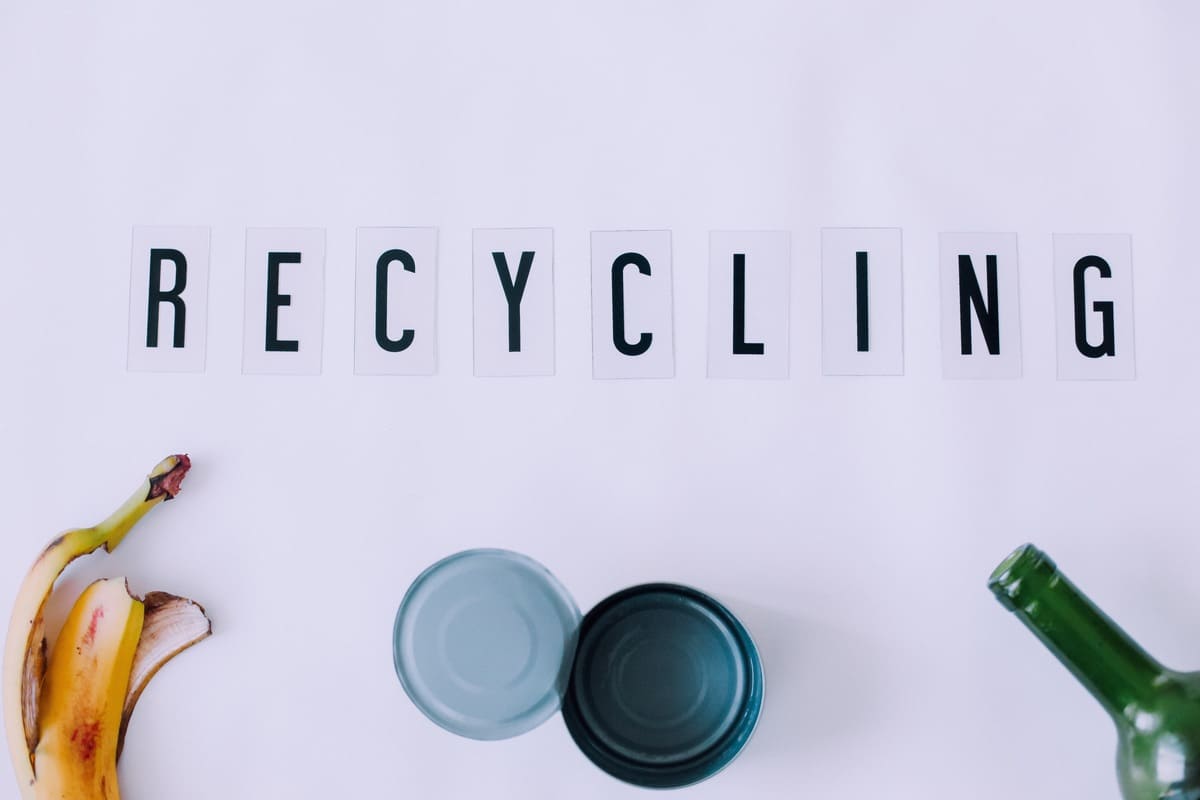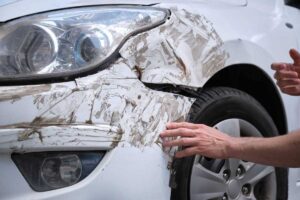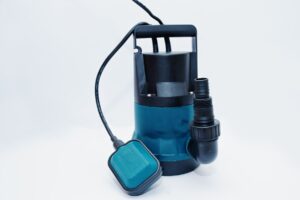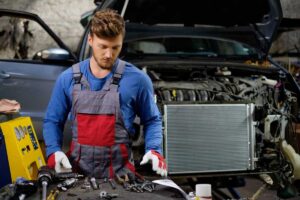Basic recycling guide 2022: The best tips for home and street
Do you want to know the best basic recycling guide? Surely you have heard about the importance of recycling, and that is that more and more people are concerned about the environment. However, there are still many people who do not know what recycling is, how it is done and what it is for.
In this basic recycling guide we explain everything you need to know about this topic. In addition, we give some tips to help you put recycling into practice in your day to day, both at home and on the street when you go for walks.
Basic guide to recycling at home
Do you want to know the ways to recycle at home? Here is a basic recycling guide at home that will help you get the most out of recycling. First of all, it is vital to know which waste can be recycled and which cannot, in order to later know how to recycle it.
❖ Non-recyclable waste
Some materials cannot be recycled, but it is still important to know what to do with them. In this guide to recycling at home, you will know The following are common wastes that cannot be placed in the recycling bin:
- Batteries
- Butter, cooking oil, or greasy food
- Ceramic, broken glass, or porcelain
- Dirty or stained clothing
- Broken or damaged toys
- Toilet paper or paper towels
- Mirrors or crystals
Non-recyclable waste should be put in the trash, but there are some exceptions. Batteries, for example, can be deposited in a special hazardous waste collection container or taken to a recycling center. Similarly, broken glass or china should be put in the bin, but undamaged glass can be recycled.
For hazardous waste, such as liquids or chemicals, check with your local municipality or health department for disposal instructions. Never pour liquids or chemicals down the drain or onto the ground.
❖ Recyclable waste
Now that we know what cannot be recycled, thanks to this basic recycling guide, what can we put in the recycling container? The list in the home recycling guide varies by area, but in general the following can be recycled:
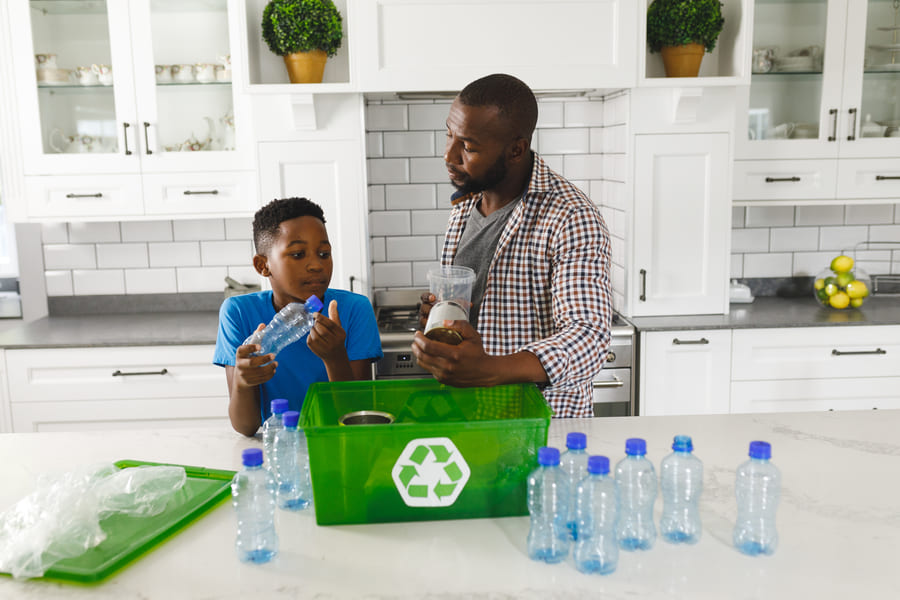
- Paper and cardboard (packaging, newspapers, magazines). Paper and cardboard are easy to recycle and can be put in most recycling bins. It is not necessary to clean or disinfect the paper or cardboard, but it is necessary to remove all adhesives, staples and nails. The following are some types of paper and cardboard that can be recycled: Printing paper (white, opaque), writing paper (colored, white), newsprint or magazine paper, packing paper (kraft paper, wrapping paper)
- Paper of aluminum. Aluminum foil can be disposed of in most recycling bins, but it is important to clean it before disposing of it. To clean the foil, remove it from the packaging and wipe it with a damp cloth. If it is very dirty, you can wash it with soap and water.
- Other recyclable waste is: Metal cans and jars (sauce, drinks), plastic bottles and containers (water, juice), cartons (soups, milk), glass (bottles, jars).
Some materials, such as cardboard or glass, can be deposited in the recycling container without any special treatment. Others, according to the home recycling guide, such as plastic containers or cans, must be cleaned and dried before being deposited. For detailed instructions on how to prepare materials for recycling, see the basic recycling guide for your area.
In general, the home recycling guide mentions that the materials that are deposited in the recycling container must be free of organic waste (such as food or excrement) and non-recyclable waste (such as broken glass or ceramics). If the materials are very dirty, they may need to be placed in the trash.
❖ Green products
In this guide to recycling at home, the best way to reduce the amount of waste we generate is to buy green products, such as:
- Recycled paper
- Rechargeable batteries
- Reusable bottles and containers
By buying green products, we are reducing the amount of waste generated and helping the environment. What contributes to a better world for all.
Another way to take into account this basic recycling guide is to know about organic waste. Organic waste, such as fruit and vegetables, can be placed in the rubbish bin or composted. Composting is a process in which waste is broken down and turned into compost, which is a natural fertilizer. You can make the most of it if you have a garden at home or if you want to sell the compost.
Street Recycling Guide
The Basic Recycling Guide includes chemical products or hazardous waste that cannot be deposited in the street, and that some materials, such as aluminum foil, must be cleaned before being deposited. To recycle on the street, it is important to recognize the different containers and know what materials can be deposited in each one.
❖ Ecological points
They are found everywhere (shopping centers, companies, public services and others) and are the ideal place to deposit recyclable waste. To find out if an ecological point is close to your home or work, consult the clean point search engine.
On the street, it is not always possible to reach an ecological point, especially if you are walking or cycling. If you are going to travel around the city by public transport, take a small bag to separate waste. Another important point about the 2022 basic recycling guide is that, if you go by car, take advantage of the collection days to take the waste to a clean point.
❖ collection
Centers in some places, such as recycling stores and police stations. You can take your waste there and thus help to be recycled. You can also go to the recycling companies directly for more information, and Junior’s Recycling is at your entire disposal. Well, it is also in charge of helping young people to reach their goal in terms of recycling projects.
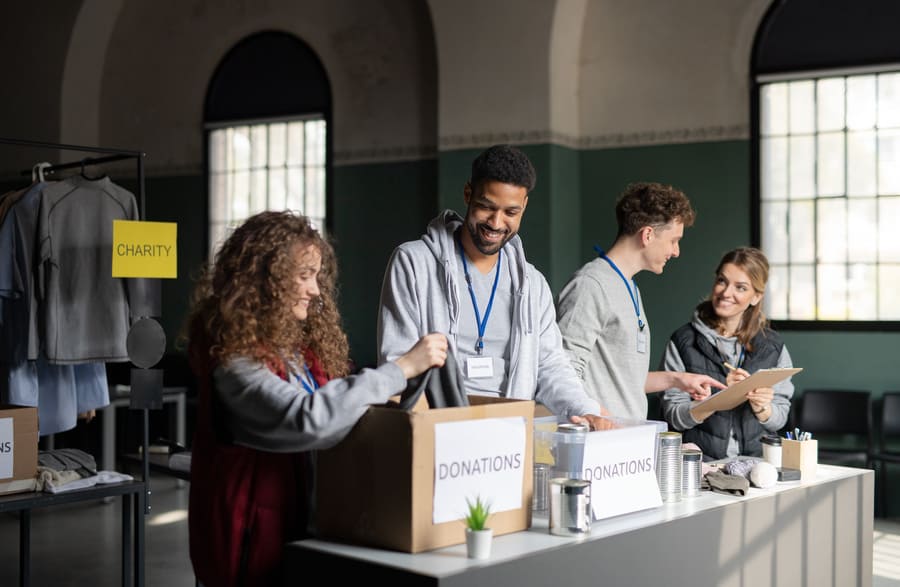
In conclusion, the basic recycling guide is a very important topic, but sometimes it can be difficult to tackle. Don’t be discouraged, we can all do our part to help the environment. Get started today and become a recycler! For more tips, contact us, and we will gladly assist you. We are Junior’s Recycling, your ally in recycling.

